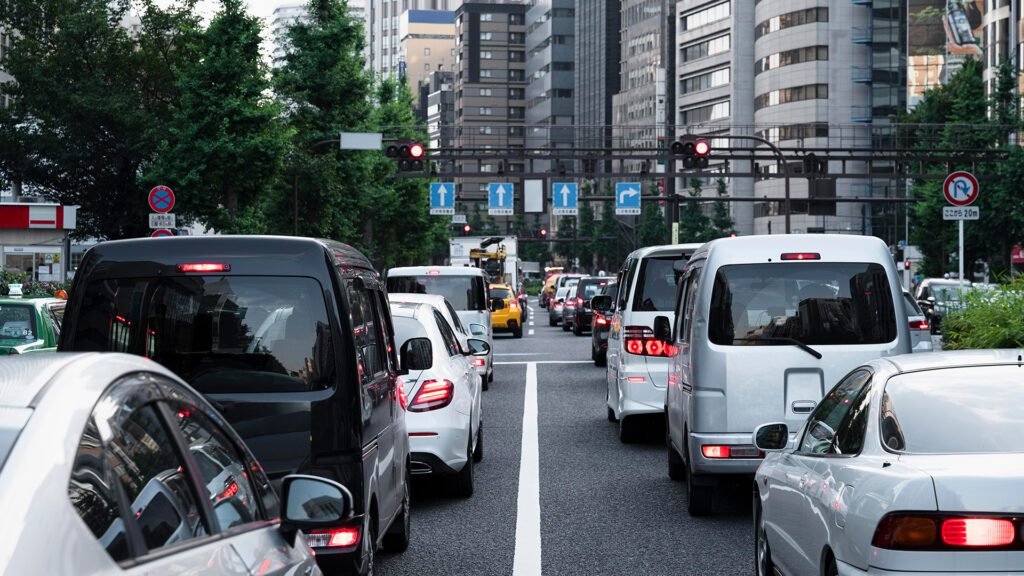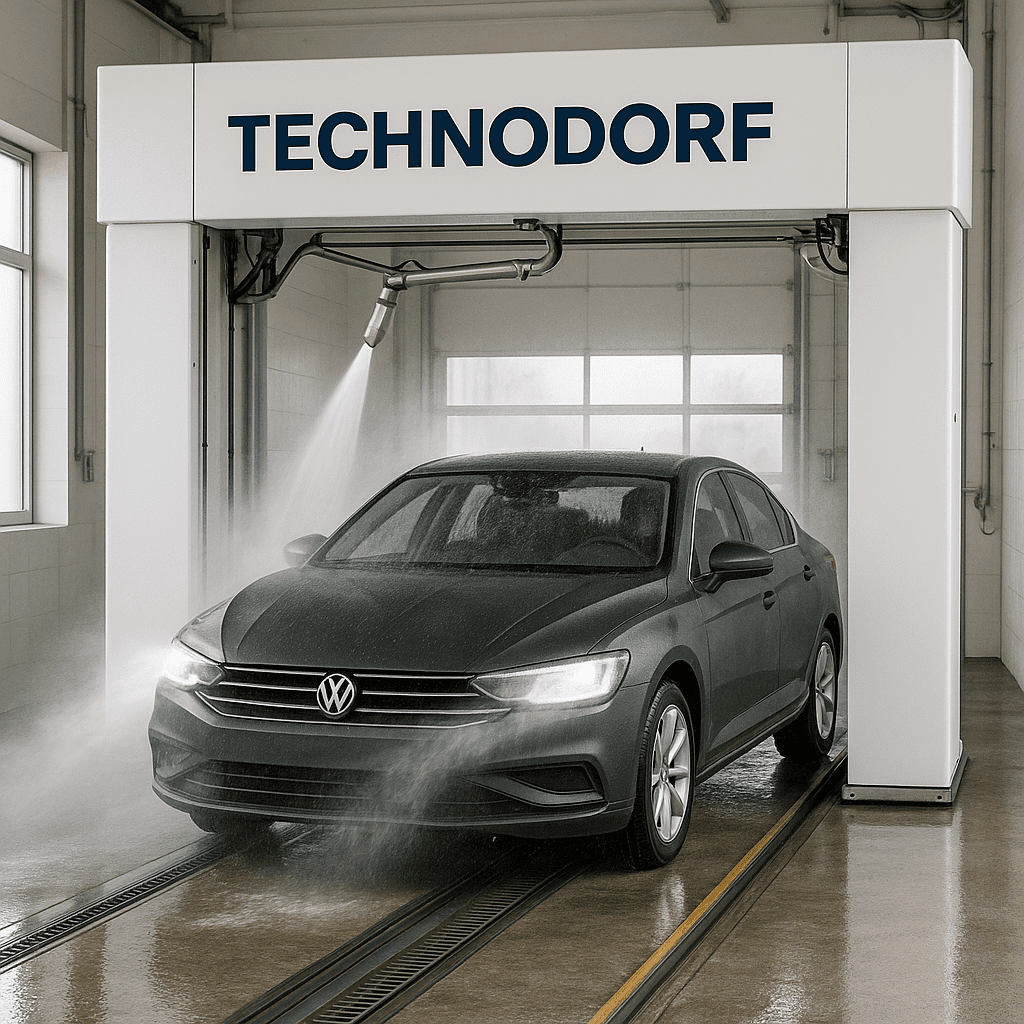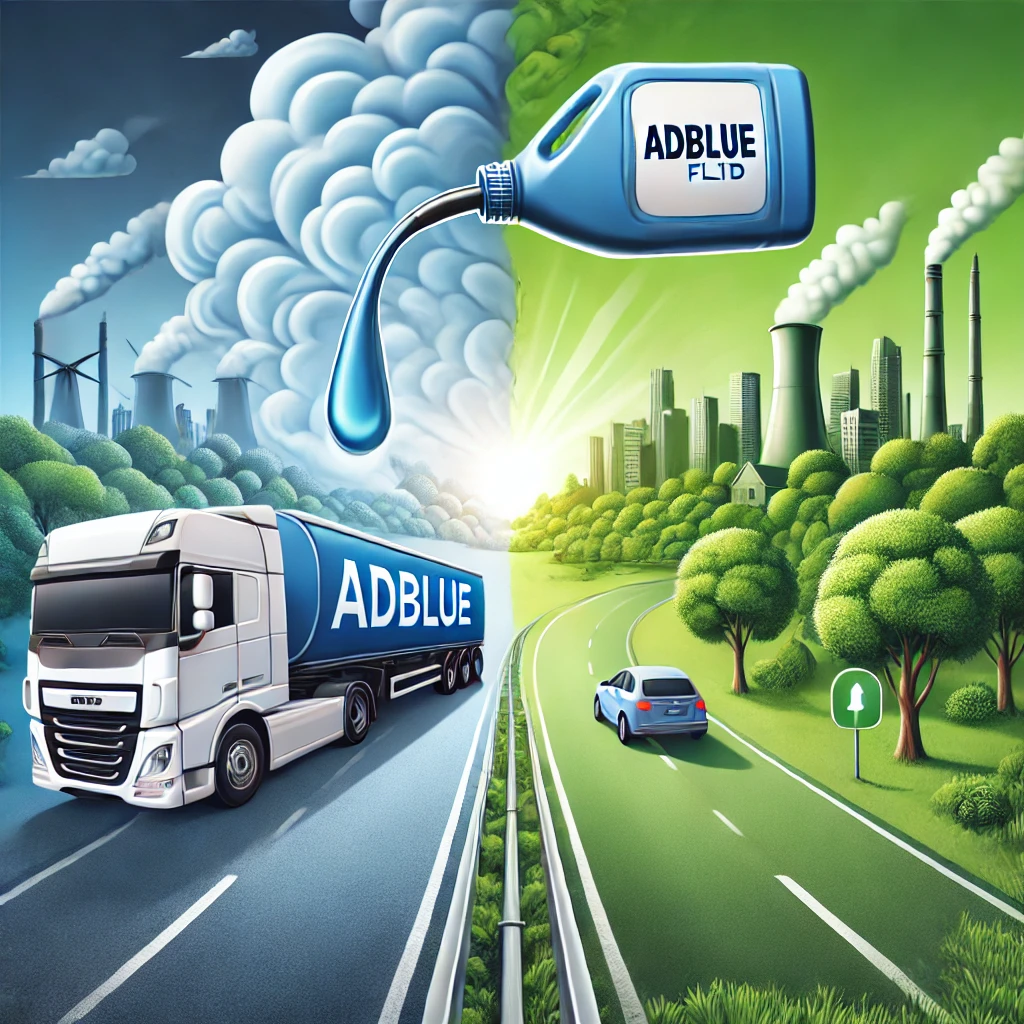USEFUL INFORMATION
USEFUL INFORMATION

Anti-Crystallization Additives for AdBlue®: Why and How to Use Them
AdBlue® (a mixture of 32.5% urea and demineralized water) is essential for reducing nitrogen oxide (NOx) emissions in modern diesel engines equipped with SCR (Selective Catalytic Reduction) systems.
However, AdBlue® is chemically unstable. Over time, or under certain conditions, it can degrade and form crystals (mostly cyanuric acid crystals). These deposits can clog the injector, block the lines, or damage sensors and catalysts, leading to costly repairs.
This is where anti-crystallization additives come in. They are designed either to prevent the formation of crystals or to dissolve them once they appear.
Why Does AdBlue® Crystallize?
Several conditions increase the risk of crystallization in AdBlue®:
- Repeated short journeys: the SCR system does not reach its full working temperature, so AdBlue® doesn’t vaporize completely.
- Frequent stop-and-go driving: common in urban use (taxis, buses, delivery trucks).
- Vehicles used infrequently: when AdBlue® remains stagnant in the tank and pipes for long periods.
- Cold climates: low temperatures accelerate crystallization risks.
- Residual deposits: if AdBlue® dries around the injector nozzle, crystals form quickly.
These situations are common in both private vehicles and professional fleets.
Main Categories of Additives
There are two fundamental approaches:
1.Stand-Alone Additives
Added manually to the AdBlue® tank alongside standard AdBlue®.
Examples include:
- Admax (Xenum)
- MécaTech D2U
- Tunap 987 / Tunap 988
- Warm Up
- Wynn’s Anti-Crystallization
- Bardahl Anti-Crystallization
These products are generally dosed at around 25–100 ml per 8–12 liters of AdBlue®, depending on the brand.
Functions:
- Prevent formation of cyanuric acid crystals.
- Dissolve existing crystals.
- Protect injectors, pumps, and sensors from clogging.
- Reduce the risk of SCR malfunction indicators appearing on the dashboard.
2. Pre-Mixed Additized AdBlue®
Instead of adding a separate product, the AdBlue® itself already contains an anti-crystallization agent.
Main references:
- Total ClearNOx® (also known as Diaxol®)
- CleanR MAX® (Renault Trucks Oils)
Advantages:
- Ready to use (no need for manual dosing).
- Works for all vehicles equipped with SCR (cars, trucks, agricultural machinery, buses).
- More convenient for regular or professional use.
3. International Additives (English References)
In addition to European products, other names often appear in the English-speaking market:
- 5in1 Blue+ AdBlue® Enhancer (250 ml)
- Wynn’s Crystal Clean & Protect (125 ml)
- Forté Exhaust Crystal Preventer (150 ml)
Benefits of Using Anti-Crystallization Additives
- Maintenance savings: avoids injector or catalyst replacement.
- Cleaner system: prevents deposits in tanks, pipes, and dosing modules.
- Reliability: fewer dashboard warnings, limp modes, or engine power reductions.
- Universal use: suitable for cars, vans, trucks, and industrial diesel engines.
- Flexibility: can be preventive (regular use) or corrective (to clean an already affected system).
Safety and Usage Recommendations
- Never pour into the diesel tank — additives are strictly for the AdBlue® reservoir.
- Use a funnel with a flexible spout to avoid splashing.
- Store in a dry place, away from sunlight, and keep tightly closed.
- Wear gloves and protective glasses — products may be irritating or flammable.
- Always respect the recommended dosage on the packaging.
Conclusion
Crystallization is one of the main risks associated with AdBlue®. Left untreated, it can quickly cause SCR system failures, immobilize vehicles, and result in significant repair costs.
Using anti-crystallization additives — either as separate products or as part of pre-mixed AdBlue® solutions — is an effective way to:
- Protect the SCR system.
- Extend the service life of components.
- Guarantee cleaner emissions and lower operating costs.
For drivers making short trips, fleets operating in cities, or vehicles exposed to cold weather, these additives are a simple, preventive solution to a complex and expensive problem.

Which Cars Use AdBlue®?
AdBlue® is a special fluid used in diesel vehicles equipped with SCR (Selective Catalytic Reduction) technology. This system drastically reduces harmful nitrogen oxides (NOx) from diesel exhaust gases, converting them into harmless nitrogen and water vapor.
While AdBlue® was initially used mainly in heavy-duty vehicles, today it is found in the vast majority of new diesel cars sold in Europe.
Why Do Cars Use AdBlue®?
With increasingly strict environmental regulations for diesel vehicles, manufacturers have developed systems to significantly cut emissions from fuel combustion. The SCR system, combined with AdBlue®, has proven to be one of the most effective methods for drastically reducing NOx emissions, which are extremely harmful to human health and the environment.
How Does SCR Technology Work?
- Injection – AdBlue® is injected into the exhaust stream, just after the diesel engine.
- Conversion – At high temperatures, the urea in AdBlue® breaks down into ammonia.
- Reduction – The ammonia reacts with nitrogen oxides inside the SCR catalyst, transforming them into nitrogen and water vapor.
Main Car Brands and Models That Use AdBlue®
Renault
- Models: Alaskan, Captur, Clio, Espace, Kadjar, Kangoo, Koleos, Master, Megane, Scenic, Talisman, Trafic
- Engine: Blue dCi
- Tank Capacity: 15–20 liters
- Filler Location: Fuel filler flap
Peugeot
- Models: 208, 308, 508, 2008, 3008, 5008, Boxer, Expert, Partner, Traveller
- Engine: BlueHDi
- Tank Capacity: 17 liters
- Filler Location: Fuel filler flap or in the trunk
Citroën
- Models: Berlingo, C3, C4, C5, Jumpy, Jumper, Spacetourer, C3 Picasso, C4 Cactus, C4 Picasso, C5 Sedan, C5 Tourer
- Tank Capacity: 17–22.4 liters
- Filler Location: Fuel filler flap
Dacia
- Models: Duster, Lodgy
- Engine: Blue dCi
- Tank Capacity: 14–17 liters
- Filler Location: Fuel filler flap
Volkswagen
- Models: Golf, Golf SW, T-Roc, Tiguan, Tiguan Allspace, Passat, Passat SW, Touran, Arteon
- Tank Capacity: 11–19 liters
- Filler Location: Fuel filler flap or in the trunk
Toyota
- Models: Hilux, Land Cruiser, Proace
- Filler Location: Under the hood
Ford
- Engine: EcoBlue
- Models: Ecosport, Galaxy, S-Max, Tourneo Connect
- Filler Location: Fuel filler flap
Mercedes
- Technology: BlueTec
- Models: A-Class, B-Class, C-Class, CLA, E200, ML250, R350
- Tank Capacity: 11.5–25 liters
- Filler Location: Fuel filler flap
BMW
- Models: 1 Series to 8 Series, X1 to X7
- Tank Capacity: 12–15 liters
- Filler Location: Fuel filler flap or under the hood
Audi
- Models: A1 to A8 (including S and RS), TT, Q1 to Q8
- Tank Capacity: 12–24 liters
- Filler Location: Fuel filler flap
Opel
- Technology: BlueInjection
- Models: Astra, Corsa, Cascada, Crossland, Grandland, Insignia, Mokka, Movano, Vivaro, Zafira
- Tank Capacity: 13–22.4 liters
- Filler Location: Fuel filler flap
Other Brands Using AdBlue®
Other manufacturers that use AdBlue® in their diesel models include DS, Fiat, Hyundai, Infiniti, Jaguar, Jeep, Kia, Land Rover, Mitsubishi, Nissan, Porsche, Seat, Skoda, and Volvo.

Touchless Car Wash Systems by TechnoDorf®: No Contact, Maximum Impact
🌍 The Future of Car Washing Is Contact-Free
As customer expectations evolve, car owners are no longer satisfied with just a basic wash—they demand scratch-free cleaning, paint protection, and fast, efficient service. At TechnoDorf®, our Touchless Car Wash Systems deliver precisely that with cutting-edge automation and sustainability.
🧠 Smart Technology, Gentle Power
Using high-pressure water jets and specialized cleaning agents, our systems clean vehicles thoroughly—without any physical contact. The risk of micro-scratches is eliminated, making it ideal for luxury vehicles and sensitive surfaces.
Thanks to our PLC-controlled automation, the machine intelligently adapts to the shape and size of each vehicle, ensuring optimal results every time.
🌱 Eco-Friendly and Cost-Efficient
Minimal water consumption
Integrated water recycling systems
Energy-saving operation
Our touchless systems are built with sustainability in mind, helping your business reduce its environmental impact while cutting operational costs.
🏭 Why Choose TechnoDorf®?
Industry expertise since 2012
Designed for 24/7 unmanned operation
Low maintenance & high durability
Made in Europe, compliant with international standards
Customizable features & scalable systems
🚙 Perfect for:
Fuel stations
Professional car wash businesses
Car rental agencies
Municipal fleets
Auto dealerships
🔍 Ready to upgrade your car wash business?
Explore our touchless systems at
👉 www.technodorf.com/car-washer-automatic-car-wash-systems/
Let us help you deliver faster, safer, and smarter vehicle cleaning.

AdBlue – A Key Player in the Green Revolution
🌱 How AdBlue is Driving the Future of Sustainable Transportation
The need for environmentally friendly solutions has never been greater. With industries and governments striving to reduce carbon footprints, AdBlue has emerged as a crucial solution in decarbonizing diesel-powered vehicles and machinery.
Why is AdBlue Essential for Sustainability?
While electric vehicles (EVs) and alternative fuels are growing in popularity, diesel-powered transport still plays a vital role in global logistics, construction, and agriculture. Completely replacing diesel engines overnight is not feasible, making AdBlue a key transitional technology in the fight against climate change.
By using AdBlue in SCR systems, diesel vehicles can achieve:
✔ Up to 90% reduction in NOx emissions
✔ Lower carbon dioxide (CO₂) output
✔ Improved air quality in urban and industrial areas
✔ Extended vehicle lifespan with optimized engine performance
AdBlue & Carbon Neutrality – What’s Next?
Many global sustainability programs emphasize the need for carbon-neutral solutions. As governments enforce stricter emission regulations, the demand for high-quality AdBlue will continue to rise. With future innovations, AdBlue production itself is also becoming greener, utilizing renewable energy, optimized water recycling, and lower waste emissions.
TechnoDorf®️: Your Partner in Sustainable AdBlue Production
At TechnoDorf®️, we are dedicated to providing high-efficiency AdBlue production plants that:
🌍 Reduce environmental impact through energy-efficient processes
🔬 Ensure purity for maximum SCR system efficiency
⚡ Support global efforts to achieve carbon neutrality
We believe that AdBlue is not just a solution—it’s a step towards a cleaner, more sustainable future.
🚛 Let’s work together to create a world with fewer emissions and a healthier planet.

Moving Towards a Zero Carbon Footprint with AdBlue
🌍 A Greener Future with AdBlue & Sustainable Emission Control
As the world shifts towards sustainable solutions, reducing carbon footprints has become a top priority across industries. One major area of concern is the emissions produced by diesel engines, which contribute to air pollution and environmental degradation.
At TechnoDorf®️, we are committed to supporting the journey toward a zero carbon footprint with our advanced AdBlue production systems.
Understanding AdBlue’s Role in Emission Reduction
AdBlue is a high-purity urea solution that plays a crucial role in Selective Catalytic Reduction (SCR) technology. When injected into the exhaust system of diesel engines, it reacts with harmful Nitrogen Oxides (NOx) and converts them into harmless nitrogen and water vapor. This process significantly reduces toxic emissions, helping industries and transportation move towards cleaner operations.
Key Benefits of AdBlue in Achieving Zero Carbon Footprint
✅ Drastic NOx Reduction: Contributes to cleaner air and lower health risks.
✅ Improved Fuel Efficiency: SCR technology enables engines to burn fuel more efficiently.
✅ Compliance with Environmental Regulations: Meets Euro 6, EPA, and other strict emission standards worldwide.
✅ Sustainability in Transportation & Industry: Essential for logistics, construction, and heavy-duty vehicles striving for eco-friendly operations.
TechnoDorf®️: Leading the Way in Sustainable AdBlue Production
At TechnoDorf®️, we integrate cutting-edge green manufacturing processes to ensure that our AdBlue production plants are energy-efficient, waste-free, and environmentally responsible. Our technology minimizes emissions during production while ensuring high-purity AdBlue solutions for our clients worldwide.
🚀 Join the movement towards a zero-carbon future with TechnoDorf’s sustainable AdBlue solutions!

Our New Contact-Free Car Wash Plant from TechnoDorf®️!
🌍We’re excited to introduce our state-of-the-art, Touchless Car Wash Plant, engineered by TechnoDorf®️ Technologies and Engineering in Ankara. This fully automated system delivers top-tier performance with minimal environmental impact—operating 24/7, without the need for onsite attendants.
Why it stands out:
Contact-Free Technology: Delivers a scratch-free, gentle wash experience using high-pressure water and foam—no brushes, no damage.
Modular & Scalable: Available in compact setups or high-throughput configurations to fit any site or customer volume. Fully customizable based on your needs.
✅Energy-Efficient & Sustainable: Designed for low power consumption and reduced resource use—smart systems that are eco-friendly and economical.
Proven Global Reach: With installations across Europe, MENA, and beyond, TechnoDorf®️ products meet rigorous international standards.| www.technodorf.fr | www.technodorf.it | www.technodorf.nl